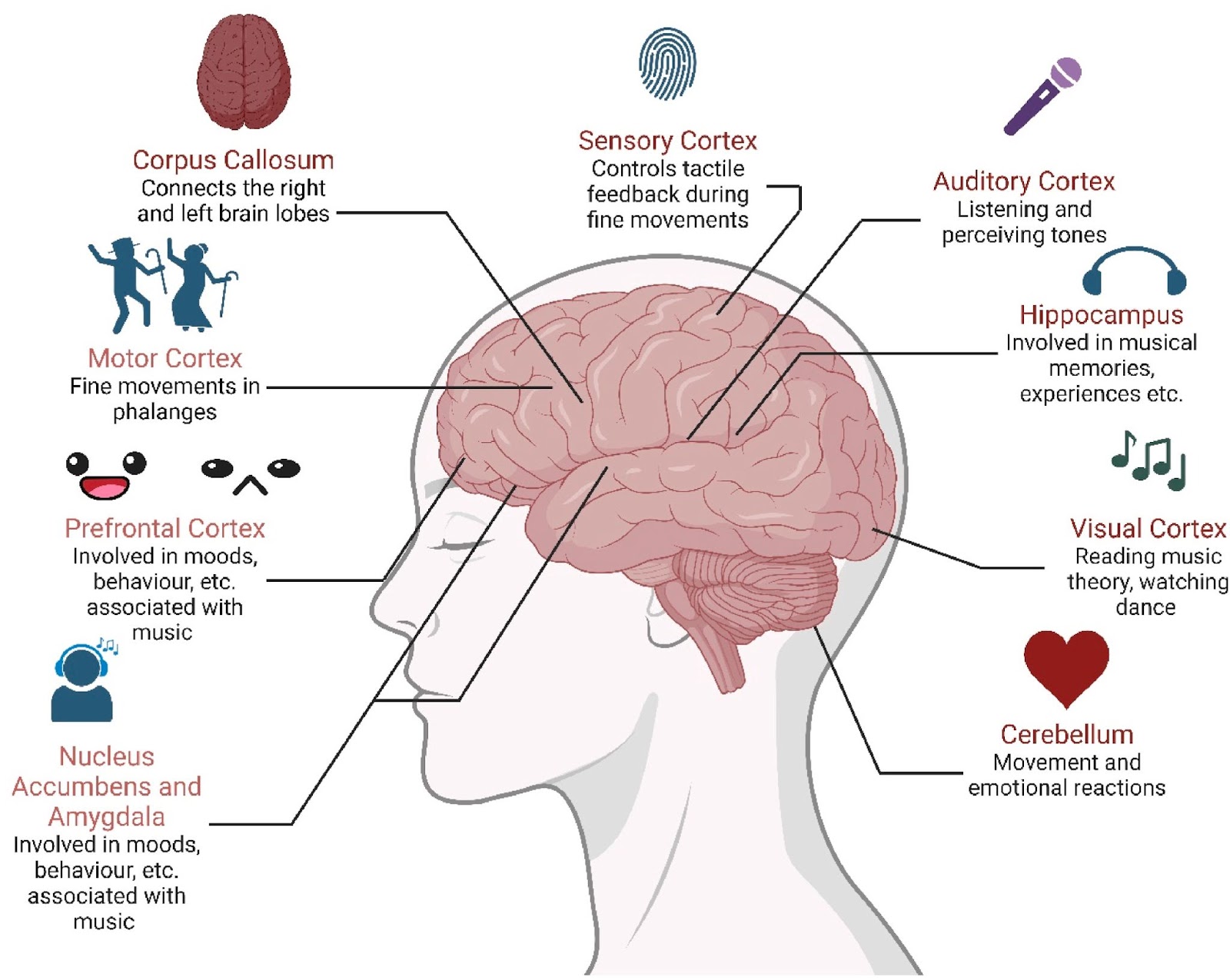Music is a powerful means of evoking emotions and forging connections. It can stir a wide range of emotions—from joy and nostalgia to sorrow—and trigger vivid memories. A familiar tune can remind us of cherished childhood experiences or difficult times. In recent years, music has become a more widespread form of therapy for dementia patients. Recent studies have demonstrated that musical interventions can reduce agitation in patients with dementia or Alzheimer’s and promote enhanced communication and interaction, making them a valuable tool in caregiving.
Dementia and the Efficacy of Music Therapy
Dementia is a collective term that refers to the loss of memory and a decline in cognitive function that interferes with an individual's daily life and basic activities. The severity of dementia can vary from mild stages where cognitive function is only slightly impacted to more advanced, severe stages, in which individuals become entirely dependent upon others for basic care. Alzheimer’s disease, which accounts for 60% to 80% of dementia cases, is the leading cause of dementia. Currently, an estimated 6.7 million Americans ages 65 and older are living with Alzheimer’s-related dementia.
In an interview at the Durham VA Medical Center, music therapist Martine Bullard highlighted the powerful impact of music on dementia patients. “Due to the nature of the brain's plasticity, music can connect and create new neural pathways and improve overall physical, cognitive, and behavioral issues,” she said.
Bullard emphasized that music is one of the few stimuli capable of engaging the entire brain—even reaching areas damaged by dementia. According to Dr. Borna Bonakdapour, a physician musician at Northwestern Medicine, even patients who have lost the ability to recognize loved ones or engage in basic activities can often recall songs from their past because the “long-term memory of music remains intact until the very last stages of disease progression.” This profound connection between music and memory enables patients to maintain a level of cognitive engagement otherwise diminished by dementia. Engaging with music not only alters the brain but also activates neural networks linked to various cognitive, motor, and language functions. Musical engagement can further stimulate neural functions beyond musical processing.

Above: The effects of music therapy on specific brain regions. Image courtesy of Ramaswamy et al., 2024.
Benefits in Practice
As a music therapist, Bullard uses a range of techniques in her sessions with patients, often starting with active music-making to foster engagement. These exercises could include drumming, singing, or strumming on the guitar. Active music-making can improve a patient's impulse control and focus. By using familiar, nostalgic songs from her patients’ youth, Bullard helps dementia patients with memory recall. For instance, she may encourage them to remember song titles or reminisce about when or where they heard a particular tune, prompting conversations that can transport the patients to the past and evoke forgotten memories. These activities help Bullard to engage meaningfully with her patients: “Music is the key that unlocks the door.”
In addition to memory-related benefits, Bullard attests that music can soothe distressed patients. When veterans with dementia at the Durham VA Medical Center become agitated, Bullard employs various music therapy techniques to calm them down. Bullard recounted one instance in which a gentleman in a wheelchair was trying to stand up, becoming increasingly upset despite his nurse’s attempts to keep him seated for his safety. Having interacted with this patient before, Bullard recalled his passion for 1950s singer-songwriter Hank Williams Sr. and began playing her guitar. The patient not only calmed down and sat down in his wheelchair but also began to sing along. Through music, Bullard focuses on fostering emotional connections with dementia patients and helping them release their emotions. “Music touches the soul in a way that not everything does,” she said.

Above: Martine Bullard engaging in a music therapy session with a veteran. Image courtesy of Durham VA Healthcare System Facebook.
Hope for Dementia Patients
Throughout her many years of practicing as a music therapist, Bullard has witnessed the powerful effects of music therapy firsthand. Early in her training, one particularly memorable moment involved a non-verbal patient with advanced Alzheimer’s. Upon hearing a popular song from her youth, the patient suddenly locked eyes with Bullard and began whistling, matching the tune and pitch perfectly. For a nonverbal patient with advanced Alzheimer’s, this response represents a significant improvement in engagement. Working with advanced, non-verbal dementia patients is often challenging, as therapists may struggle to determine the music their patients like and gauge their responses. But Bullard finds it highly rewarding. “For patients with advanced dementia, even small responses—like a fleeting moment of eye contact, the hum of a familiar rune, or reduced agitation—represent significant progress,” Bullard said.
Whether through a familiar song that evokes memories or a simple melody that soothes an agitated patient, music can reach the parts of the brain that remain untouched by the disease until its most advanced states. Though music therapy is not a cure for dementia, it plays an invaluable role in enhancing the quality of life for dementia patients by promoting emotional and cognitive engagement.